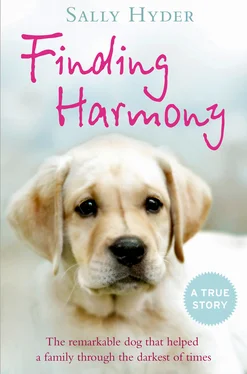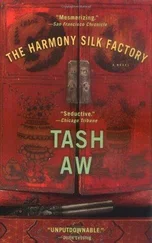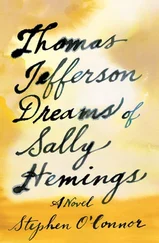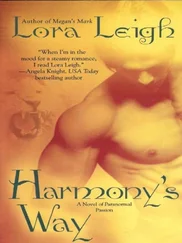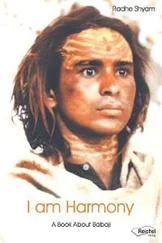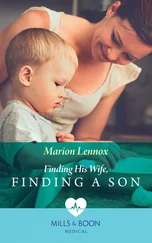On Christmas Eve we bought a Christmas tree that I decorated with red bows and white fairy lights. Andrew sat down. I sat on his lap and immediately fell fast asleep.
‘We need a dog.’
It was Saturday morning. We were drinking tea and deciding whether to do the South Downs or more decorating. The best thing about weekends in London was being able to head out to the country or go into town to visit the museums and the theatre.
‘I agree,’ said Andrew.
We had reached the dog-owning stage of our lives. Both of us were dog lovers. Growing up as an only child, I’d always been grateful for their company. For my sixth birthday, Mum and Dad gave me Sandie, a gun-shy Gun Dog, who proved to be a great companion and partial to crisps. I was eating a packet of crisps when we went to get her. Unsurprisingly, she came to sit at my feet and obviously I thought, she knows I’m her owner and that she’s mine. What a clever girl! She also loved hill walking as much as the rest of the family.
Sandie’s way of expressing her displeasure at being left at home was to collect all the shoes in the house and leave them in a pile, mercifully undamaged, in the middle of the living room. She also disgraced herself almost immediately by eating the gingerbread house that Mum had baked for my birthday. Six months later she made a foray into the Christmas cake. We soon learnt about Labradors and food!
When I was 13 years old, Mum found a stray outside my school. We took the dog to the police pound but in the ensuing conversation with the on-duty policeman decided to keep him. Mum wasn’t normally spontaneous but something about Shep made us fall in love with him. All black, he was possibly a Greyhound/Labrador mix, desperately thin and scared out of his wits; he had scabby paws, burns down one side and his ear had clearly been cut with scissors. The vet reckoned he had walked for miles. He might have been an unwanted Christmas present, living rough until he showed up outside school. Once we’d taken him home, he slept for three days and ate everything we put in front of him. He was so malnourished the vet warned that he could die if he wasn’t carefully and gradually introduced to food.
Shep was a real rascal. Dad was convinced that had he been human he’d have worn a trilby and had a fag hanging from his mouth! He was also the most accident prone dog you could ever hope to meet: he caught his eye on the hook of the seat belt and ate a kilo of walnuts, which meant that he had to drink pints of liquid paraffin to get things moving. Mum reckons the South Downs haven’t recovered from the mounds he deposited there – he had serious bellyache for weeks!
Shep and Sandie became firm friends. This was surprising given Sandie loathed every dog she met. In retrospect, it was good old-fashioned respect for his elders on Shep’s part. The only exception to the rule was the single floor cushion that both dogs liked. If Shep happened to be on it, Sandie would charge to the front door, barking. This would lead to Shep getting up to investigate what all the noise was about. In a flash, Sandie would sneak over to take up residency on the coveted cushion.
Sandie died aged 14. By then, I was living away from home but I was devastated, as were my parents. Shep also went through a long period of mourning: he moped around the house, lost his appetite and generally looked glum.
Now that Andrew and I were committed to the search for a dog, autumn weekends were spent contacting local rescue charities. If you’ve ever been to a rescue centre or homing charity with the intention of getting a dog, you’ll know exactly what I mean when I say it’s an emotional rollercoaster: your heart races and the hairs on your arms stand on end. The chorus of lonely barks and whines, all those desperate faces, is like a magic formula – there’s no way you’ll be going home empty-handed.
A few weeks into the search one of the charities phoned to let us know that they had a suitable dog. He was living with a family who couldn’t have him anymore. Jet was a year old and black, with grey eyes. He was part Black Labrador. Oh yes, and he had only three legs. Now you might think he wasn’t an ideal dog, but again gut instinct told us he was the one. Jet was the first dog we met in our search and we knew he was right for us. He soon learned we loved him: he was our joker, he brought a lot of humour into our lives. We used to walk him in Beckenham Place Park or go for longer trips on the South Downs. His favourite game was playing tug. He could run so fast, he made heads turn. My God, was that a three-legged dog? You should have seen the expression on people’s faces. Often we’d take him up to the Isle of Harris to visit my parents. They had a new dog called Lucy (Mum had given him to Dad for his birthday). Lucy was the most timid of the litter but with my parents’ encouragement, she soon grew in confidence. She was an amazing dog, who knew the ways of the Island. Whenever we visited, Jet and Lucy played tug o’ war with a long piece of rope that they had found washed up on the shore.
Life was settling into a routine that felt familiar and safe.
It was around this time that Andrew and I began volunteering for the Salvation Army Soup Kitchen. I can’t remember who thought of it first but we ended up joining the team together. In the early nineties homelessness in London had become a huge problem and prejudice against the homeless was rife. As we soon learnt, there were lots of different types of homeless people: there were those who lived in cardboard boxes, with dreadlocks and dead eyes; others were confused and mentally ill, with all their worldly belongings stashed in a shopping trolley or single carrier bag. There were also army veterans of all ages and businessmen who had lost everything, declared themselves bankrupt and walked away unable to face the shame. The Colonel was an army veteran who lived under the South Bank and knew an underground route into Covent Garden Theatre, where you could get the best standing positions for the proms. We also spent ages listening to a man whose wife and daughter had both died – he didn’t want to go on without them.
On Friday nights we would go and pick up the van from the Salvation Army Hall in Peckham and make a tour of the city’s homeless spots. London’s bright lights were dimmer, less jewel-like, from the vantage point of a van filled with free food for the disadvantaged. We did the South Bank, Waterloo, Regent Street and the Embankment giving out sandwiches donated by Marks & Spencer; there were urns of tea and coffee plus homemade soup prepared earlier by volunteers. To this day I can summon the smell of soup and tea and petrol, and with it memories of long nights dispensing help and hearing stories from people who I grew genuinely fond of. We only felt scared a couple of times. Once we were in the Bull Ring (a notorious underground area): on Andrew’s barked instructions, we all leapt into the van whereupon people jumped on the roof and kicked it. Andrew got us all out safely and that, thankfully, was the exception rather than the rule.
We gave out blankets and clothes before driving home, shattered, at 3am just before the dawn chorus. But I genuinely loved the work and admired people’s dignity: we would open the van doors to a crowd of people, all of whom had preferences.
‘I don’t like ham. Do you have any cheese and pickle?’
I had infinite respect for the way in which they asserted their right to choose, even if it was for mayonnaise rather than mustard.
To be perfectly honest, I’d say my altruism partly stems from a selfish interest in people; I’m interested in society’s marginalised groups. Later, when I worked with the Kurdish refugees who had fled after the first Gulf War and then the gypsies in Kent (where I set up a three-year healthcare project), I began to think about the implications for us all of those who society rejects. What does it say about us?
Читать дальше
